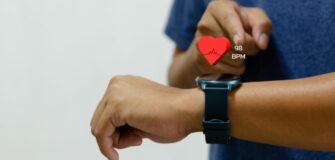Over four in five healthcare sector respondents lack confidence in their organisation’s ability to adapt to new cyber threats, with 58% struggling to keep up with evolving security threats, according to cybersecurity company Trellix.
Research from Trellix, the cybersecurity company delivering the future of extended detection and response (XDR), finds that over four in five (83%) healthcare sector respondents do not feel confident in their organisation’s ability to quickly adapt to new cyber threats. A global survey of cybersecurity professionals, including 1,000 from Australia, uncovers that 58% of respondents agree that they’re struggling to keep up with rapidly evolving security threats.
This comes as health service providers reported the highest number of notified breaches in Australia, according to The Office of the Australian Information Commissioner (OAIC) report on Notifiable Data Breaches for the period of July to December 2022. In fact, according to Trellix, 42% of respondents recognise that they have blind spots in their protection today, and even more alarming, 60% feel like they’re losing the battle against cybercriminals.
Continuously faced with a lack of resources, the research reveals 61% of respondents agree current security tools do not enable security teams to work with maximum efficiency, with almost nine in ten (88%) of respondents classing current security models as siloed.
Further to the jeopardising of Australian patient records, the bottom line is also at stake, with 40% of respondents reporting a loss of up to 10% in revenue in the past 12 months, following the impact of a breach. Challenged by an average of 49.7 cybersecurity incidents daily, security teams have their work cut out for them, hence 65% of respondents disclosed that increased investment in cybersecurity has been made over the past 12 months.
“Due to the high value of sensitive data in the healthcare sector, it’s a rampant target for malicious actors looking to exploit healthcare organisations and demand payment of an extortionate ransom,” said Luke Power, Managing Director, ANZ at Trellix.
“Healthcare records are long-lasting when compared to the likes of financial credentials that can be changed instantly, hence the spike in worth to cyber criminals. In today’s landscape applying digital ‘band-aids’ simply won’t do, consequently, there’s a need to adopt a holistic approach to security and move the industry towards a secure future.
“Following the pandemic, the industry has digitalised quickly, with medical equipment from MRI scanners to patient documentation software connected to the internet, providing yet another vector for cybercriminals to attack. Beyond securing healthcare patient data, all medical devices over a shared network must be safeguarded to avoid risk to patient care.
“Attacks are only increasing in frequency, sophistication and scale, and thus the implementation of XDR technology must be realised to support security teams to remediate threats in real-time, and bridge the gaps present in today’s siloed security tools.”
Download your free copy of XDR: Redefining the future of cybersecurity to find out more.
Ritchelle is a Content Producer for Healthcare Channel, Australia’s premier resource of information for healthcare.





















